
New AI Pin clips ChatGPT to your clothes
A US startup is set to unveil an AI-powered device that it claims could replace smartphones. Humane’s AI Pin, which launches today, will clip directly to a person’s clothes and is expected to feature a projector to turn any surface into a screen. An embedded camera and microphone means it could function as a wearable smartphone without a screen, with its creators say has been “built from the ground up for AI”. Leaks suggest the AI Pin will cost $699 and require a $24-per-month subscription fee to access AI models developed by Microsoft and OpenAI, which may include a version of the viral ChatGPT chatbot. Documents obtained by The Verge suggest it will come with two “battery boosters”, a “personic speaker”, and will be powered by a Qualcomm Snapdragon processor. It will also be able to summarise your email inbox, translate languages and come with an “AI DJ”. Humane did not respond to a request for comment but has announced that it will unveil the AI Pin on 9 November. A version of the device was revealed earlier this year at Paris Fashion Week, with models wearing a small square box on the lapels of their clothes. Humane co-founder Imran Chaudhri, who spent 22 years at Apple as a designer before forming his own startup, also gave details about how the clip will function in a TED talk in May. A demonstration showed the tech founder receiving a phone call through the device, using its laser-projected display to turn his palm into an interactive screen. “We believed that artificial intelligence would be the driving force behind the next leap in device design,” he said. “[The AI Pin] is completely standalone. You don’t need a smartphone or any other device to pair with it... It interacts with the world in the way that you interact with the world – hearing what you hear, seeing what you see – while being privacy first and safe, and completely fading into the background of your life.” Humane describes the experience as “screenless”, “seamless” and “sensing”. In a press release earlier this year, Humane co-founder Bethany Bongiorno said: “Our relationship with technology is changing profoundly, becoming even more personal as our devices morph into extensions of our bodies, minds and hearts.” Read More Elon Musk’s new AI bot will help you make cocaine which proves it’s ‘rebellious’ ChatGPT update allows anyone to make their own personalised AI assistant How Elon Musk’s ‘spicy’ Grok compares to ‘woke’ ChatGPT The mystery AI device that could replace your phone
2023-11-09 19:19
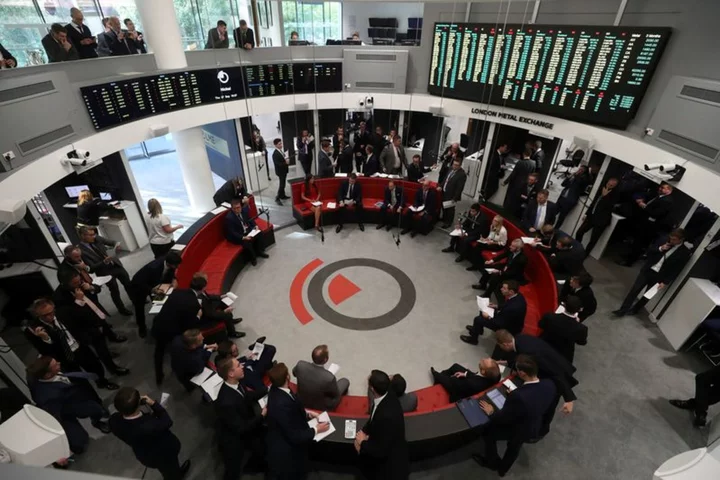
LME appoints new technology manager to strengthen expertise for flagship project
LONDON The London Metal Exchange (LME), which faces lengthy delays to its trading technology revamp, said on Thursday
2023-11-09 18:22
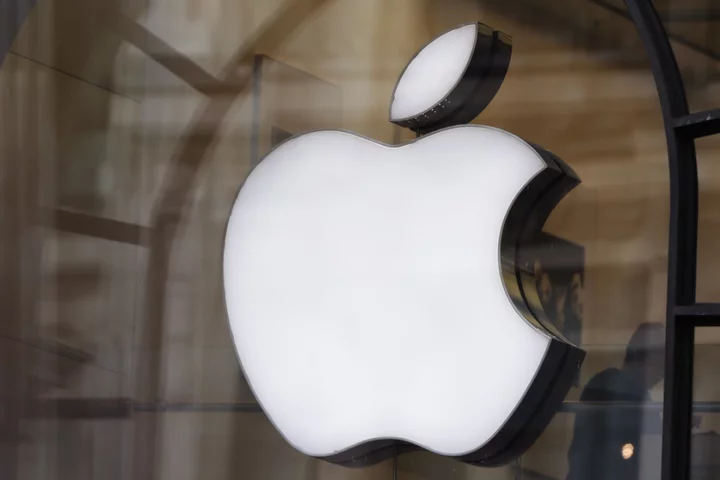
Setback for Ireland as EU legal adviser recommends revisit of Apple tax case
A legal expert at Europe’s top court has said a lower court committed “errors in law” when it threw out a decision by the European Commission which would force Apple to pay more than 13 billion euro in back taxes to Ireland. The non-binding opinion is seen as a significant setback to Ireland’s defence of its past tax treatment of the US technology giant. In 2016, following an EU investigation which launched in 2014, the commission concluded that Ireland gave undue tax benefits to Apple, which would be illegal under EU state aid rules. Ireland and Apple fought the commission on the matter and in July 2020, the General Court of the European Union annulled the decision. However, the European Commission subsequently appealed against the decision to the European Court of Justice (CJEU) saying the lower court’s ruling was legally incorrect. On Thursday, Giovanni Pitruzzella, an advocate general at the CJEU, agreed that the earlier ruling had contained “a series of errors in law”. He said the judgment should be set aside and referred the case back to the General Court for a new decision. While the opinion of the advocate general is non-binding, it is usually followed by the court and therefore could have significant implications for corporation tax bills. There was no sweetheart deal Finance Minister Michael McGrath The commission’s original position was that that tax rulings issued by Ireland to Apple in 1991 and 2007 substantially and artificially lowered the tax paid by the iPhone manufacturer in the country since the early 90s, in a way which did not correspond to economic reality. As a result, competition commissioner Margrethe Vestager said Ireland had granted illegal tax benefits which enabled it to pay substantially less tax than other business over many years. The investigation found that Apple had paid an effective corporate tax rate of 1% on its European profits in 2003, down to 0.005% in 2014, 50 euro for every one million euro of profit. The process involved recording almost all sales profits of two Irish incorporated companies, which the commission said only existed on paper. The companies, fully owned by Apple, held the rights to use the firm’s intellectual property to manufacture and sell its products outside North and South America. The commission said this situation allowed Apple to avoid taxation on almost all profits generated by sales of its products in the entire EU single market. It said this was due to Apple’s decision to record all sales in Ireland rather than in the countries where the products were sold. The findings were disputed by the Irish State, which said all tax owed had been collected, and Apple, which had come under scrutiny in the US for its tax practices years earlier. At the time, Apple’s chief executive, Tim Cook, branded the EU findings as “political crap”, maddening and untrue. The Irish Government, which was also used to defending a comparatively low 12.5% corporation tax rate, said Europe had overstepped the mark in attempting to dictate tax laws and enforce retrospective taxes decades later. Ireland and Apple fought the commission on the matter and in July 2020, the General Court of the European Union annulled the decision. The General Court found that the commission had not shown that there was an advantage deriving from the adoption of the tax rulings. However, the commission subsequently appealed the decision to the European Court of Justice with Ms Vestager saying the lower court’s ruling contained errors of law. On Thursday, the advocate general agreed the General Court had erred when it ruled that the Commission had not shown to the requisite legal standard that the intellectual property licences held by the two incorporated companies and related profits, generated by the sales of Apple products outside the US, had to be attributed for tax purposes to the Irish branches. The advocate general was of the view that the General Court also failed to assess correctly the substance and consequences of certain methodological errors that, according to the Commission decision, “vitiated the tax rulings”. It is the non-binding opinion of Mr Pitruzzella that it is necessary for the General Court to carry out a new assessment. The decision of the CJEU on the matter is expected next year and will have significant implications for how member states grant tax breaks to major firms. Apple has argued it has been paying tax on the profits in question in the US, while Ireland has seen it necessary to defend its reputation on taxation issues to protect foreign direct investment. Last weekend, Finance Minister Michael McGrath had said the advocate general’s opinion would be “significant” but added it is not the final step in the process. Mr McGrath said: “We are confident in our position in respect of the Apple case. “We take encouragement from the findings they have made so far, but it is a significant day.” He added: “There was no sweetheart deal. “This was the application of Ireland’s statutory corporation tax code.” In the interim, the 13.1 billion euro has been held in an escrow fund pending the outcome of the case. The money, with interest, is due to be entered into the Irish exchequer if the commission wins the case. However, other member states may make claims that they are owed some of the money. If the commission loses the appeal, the large sum will be returned to Apple. Read More Smartphones ‘may be able to detect how drunk a person is with 98% accuracy’ Ireland and Apple await major development in long-running EU tax dispute Guidance urges parents not to buy smartphones for primary school children William ‘blown away’ by futuristic technology from Singapore start-ups Return of original Fortnite map causes record traffic on Virgin Media O2 network NatWest creates new AI-powered chatbot capable of ‘human-like’ conversations
2023-11-09 18:22
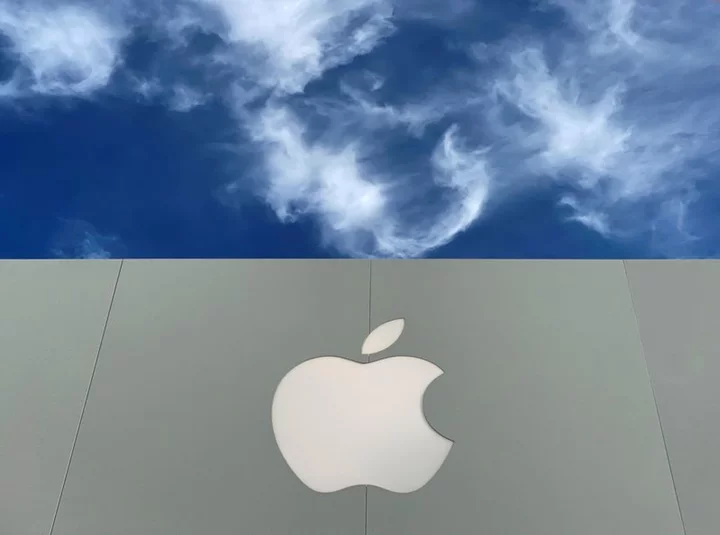
Apple suffers setback in fight against EU's $14 billion tax order
By Foo Yun Chee and Bart H. Meijer LUXEMBOURG (Reuters) -An EU tribunal made legal errors when it ruled in
2023-11-09 18:21
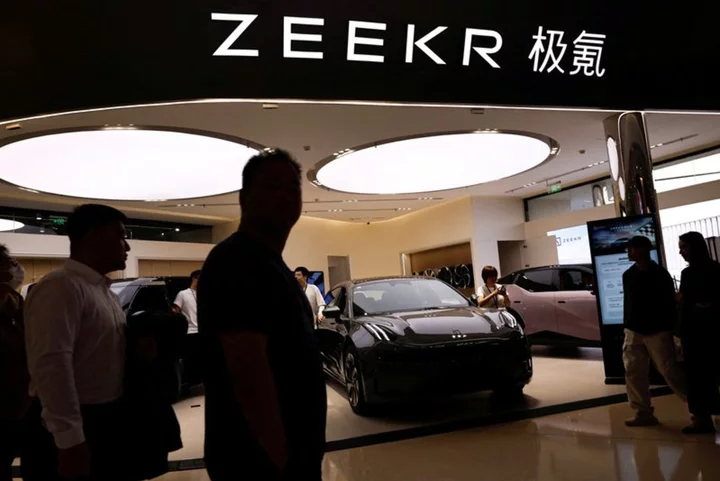
Exclusive-Geely's Zeekr edges closer to US IPO, to make filing public this week - sources
SHANGHAI (Reuters) -Zeekr, Chinese automaker Geely's premium electric car brand, will this week publicly release some details of its plans
2023-11-09 18:16

US-China Climate Talks Wrap Up With Warm Words But Few Details
The top climate envoys from the US and China ended five days of face-to-face talks late Wednesday, hailing
2023-11-09 16:58
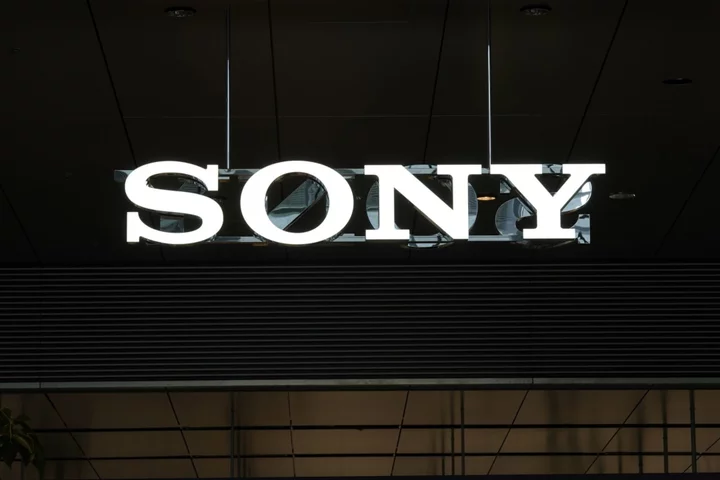
Sony Raises Outlook Yet Sounds Cautious Note on PS5 Holiday Goal
Sony Group Corp. raised its full-year outlook for sales and profit after its media divisions outperformed, yet warned
2023-11-09 16:54
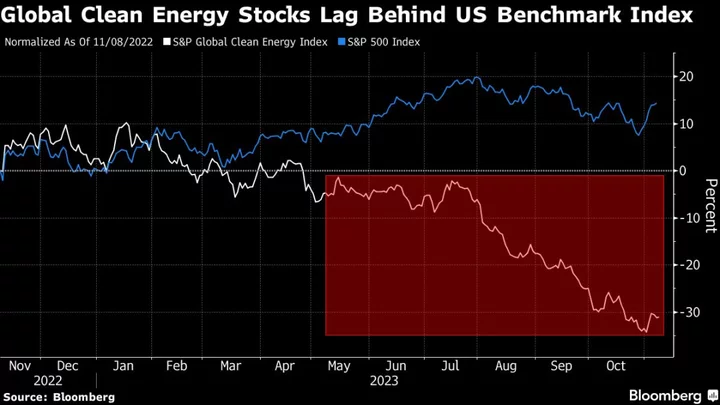
ESG Veteran Says Purge Has Further to Go With ETFs Next in Line
The bad year that a lot of ESG investors are having may be about to get even worse.
2023-11-09 16:54
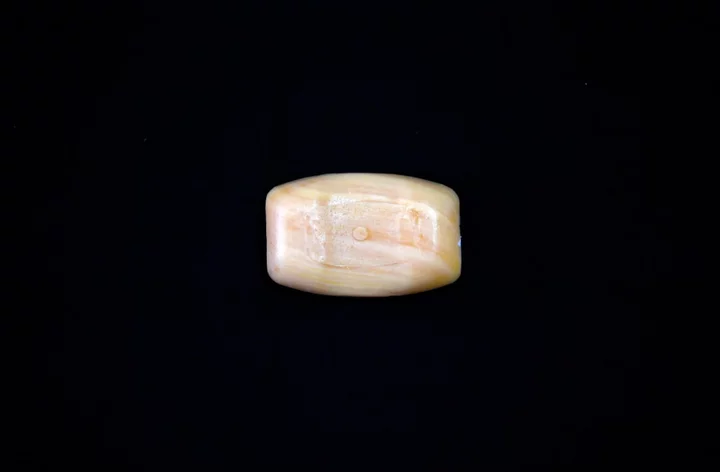
Soap may be key for longer-lasting batteries, study finds
The key to longer-lasting batteries may lie in soap, according to a new study. Scientists have developed a new promising substance used for designing batteries. They said it acts in a manner similar to soap removing grease, dirt and germs. Localised high-concentration electrolytes could be the “missing piece” that fully open the door to building longer-lasting batteries, said a recent study published in the journal Nature Materials. The key to longer-lasting batteries may lie in understanding how soap gets rid of dirt. It forms tiny structures called micelles that act as a bridge between water and what is being cleaned away by wrapping them into small structures. Scientists from Brown University said a similar process plays out in localised high-concentration electrolytes – described as one of the most promising substances for designing batteries. Electrolytes are key in the energy-storing process as they allow an electrical charge to pass between a battery’s two terminals. This sparks the chemical reaction needed to convert stored chemical energy to electricity. Batteries made from lithium metal have a greater energy storage capacity than today’s lithium-ion batteries. But the electrolytes commonly used to power lithium-ion batteries don’t do this effectively in metal-based batteries, researchers explained. “The big picture is that we want to improve and increase the energy density for batteries, meaning how much energy they store per cycle and how many cycles the battery lasts,” said study co-author Yue Qi from Brown University. “To do this, materials inside of traditional batteries need to be replaced to make long-life batteries that store more energy a reality – think batteries that can power a phone for a week or more, or electric vehicles that go for 500 miles,” Dr Qi said. Electrolytes for lithium-ion batteries are made of low-concentration salt dissolved in a liquid solvent. The new type of electrolytes, however, are created by mixing high concentrations of salt in a solvent with another liquid called a diluent. Scientists said this makes the electrolyte flow better so the power of the battery can be maintained. They also found the electrolyte functions like soap. “The paper provides a unified theory to why this electrolyte works better and the key understanding of it came by finding that micelle-like structures form within this electrolyte – like they do with soap,” said study co-author Bin Li from the Oak Ridge National Laboratory. “Here we see that the role of the soap or surfactant is played by the solvent that binds both the diluent and the salt,” Dr Li explained, “wrapping itself around the higher concentration salt in the center of the micelle”. While in lab tests, this type of electrolyte has shown promising results, how it works has remained elusive. This has put a cap on how effective it can be and how it can be further developed. The new understanding has, however, helped scientists develop the right concentrations needed to bring about optimal reactions for the batteries. “The concept of the micelle may be new for the electrolyte, but it’s actually very common for our daily life,” Dr Qi said. “Now we have a theory, and we have guidelines to get interactions we want from the salt, the solvent and the diluent in the electrolyte, and what concentration they have to be at and how you mix them.” Researchers said this new understanding could lead to introducing a proper balance of the three battery ingredients and also help extend the life of lithium-metal batteries. Read More Ireland and Apple await major development in long-running EU tax dispute Apple just released an iPhone update you should download right now Smartphones ‘may be able to detect how drunk a person is with 98% accuracy’ Ireland and Apple await major development in long-running EU tax dispute Apple just released an iPhone update you should download right now Smartphones ‘may be able to detect how drunk a person is with 98% accuracy’
2023-11-09 15:53
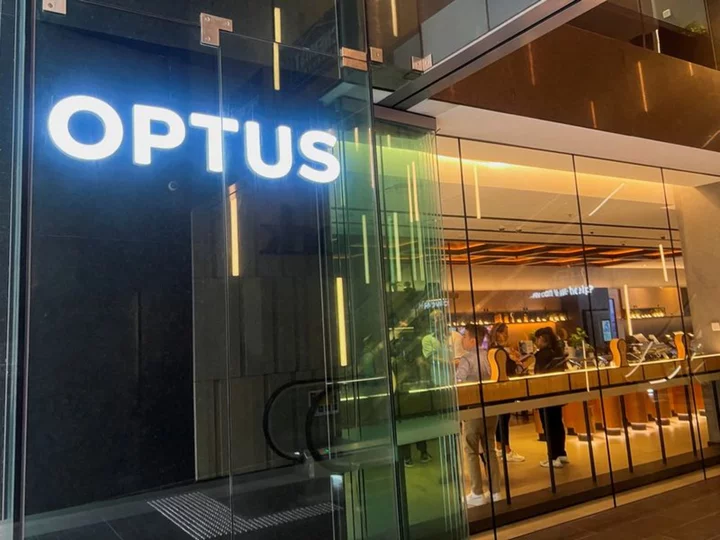
Australia to investigate Optus outage as customers seek compensation
By Renju Jose SYDNEY (Reuters) -Australia said on Thursday it would investigate an outage at telco Optus that cut off
2023-11-09 15:19
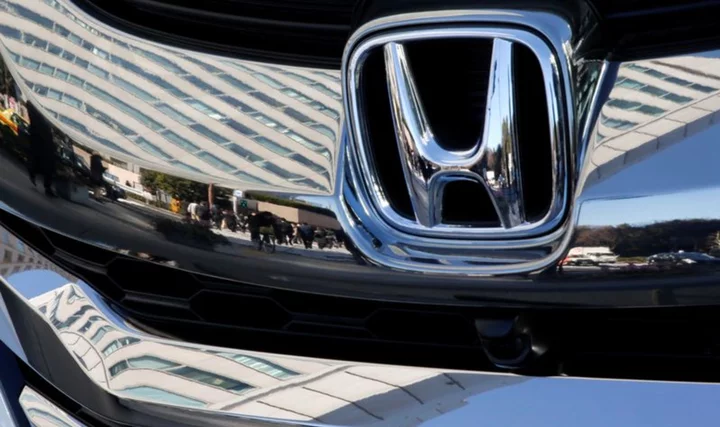
Honda posts 31% Q2 operating profit jump, raises full-year forecast
TOKYO (Reuters) -Japan's Honda Motor posted a 31% increase in operating profit for the September quarter on Thursday, lifted by
2023-11-09 14:56
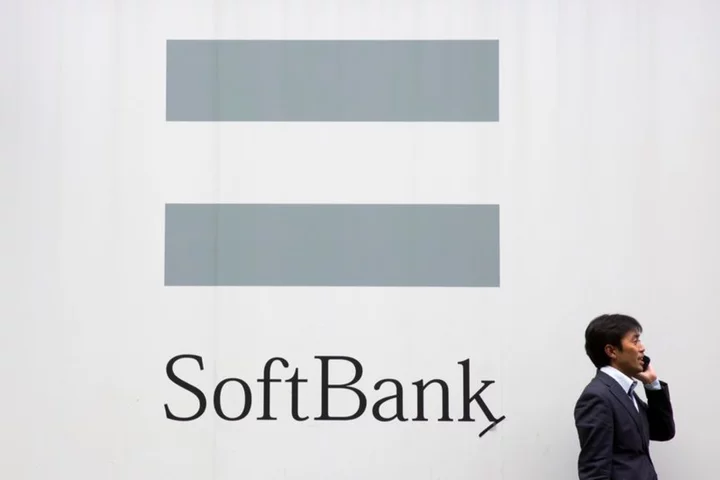
SoftBank books $5.2 billion quarterly loss as investments and weak yen bite
TOKYO (Reuters) -SoftBank Group on Thursday booked 789 billion yen ($5.22 billion) loss, marking its fourth straight quarter in the
2023-11-09 14:51
